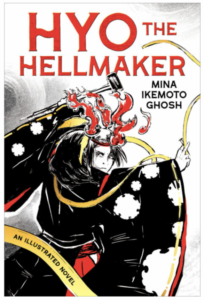 with Clayton Cowles and Rian Hughes on letters and design.
with Clayton Cowles and Rian Hughes on letters and design.
Am I getting jaded? I love mythologies and the ways that comic books spin up brand new gods and pantheons and legends and dramas, but reading this book — that feels very much like a cross between Kieron Gillen’s prior The Wicked + The Divine (with Jamie McKelvie) and Warren Ellis & Bryan Hitch’s The Authority — I just felt tired. I love when amalgams create something new. And while this was definitely a fresh take on the superhero genre, it did not, for me, feel fresh enough.
Which doesn’t make it bad at all. There are, in the book’s present day, six great superpowered people. Others have also been born into the powered Family, tho with lesser gifts. Collectively, they’re all known as Atomics, as they began to appear when the first atomic bomb was detonated. But it’s the Big Six who hold sway over the world, striving to preserve the delicate balance of peace and keep the fragile web of humanity alive against threats both internal and external. And perhaps, most importantly, to police each other from doing anything that could irreparably harm the world and the sacred timeline (yes, really) that Saint Valentina protects.
Saint Valentina is one of the first Superpowers we meet, as she has a discussion with the second, omnipath Etienne Lux, in the 1960s. Etienne believes that the ethical thing for Superpowers to do is to take over the planet as benevolent rulers and protectors. Valentina disagrees, and they nearly come to blows. Instead, they settle on the balance of powers and oversight that will carry them through the ensuing decades, to 1999 where our story picks up.









